Failed To Run Task Sequence Error 0x80004005 {Resolved}
The task sequence error 0x80004005 is the most common error I see with failing task sequences.
The error usually appears when the task sequence is trying to install an application or a package to the operating system.
The error code 0x80004005 is a “Generic” error, In my experience the error will be cause by one of three things which I will cover below.
show
Review SMSTS.log
To identify what is the root cause of this error we will need to check the smsts.log as this will have detailed information on what caused the error 0x80004005 and failed the osd task sequence.

- Start the sccm task sequence on the machine that is getting the error
- Press F8 to bring up the command prompt
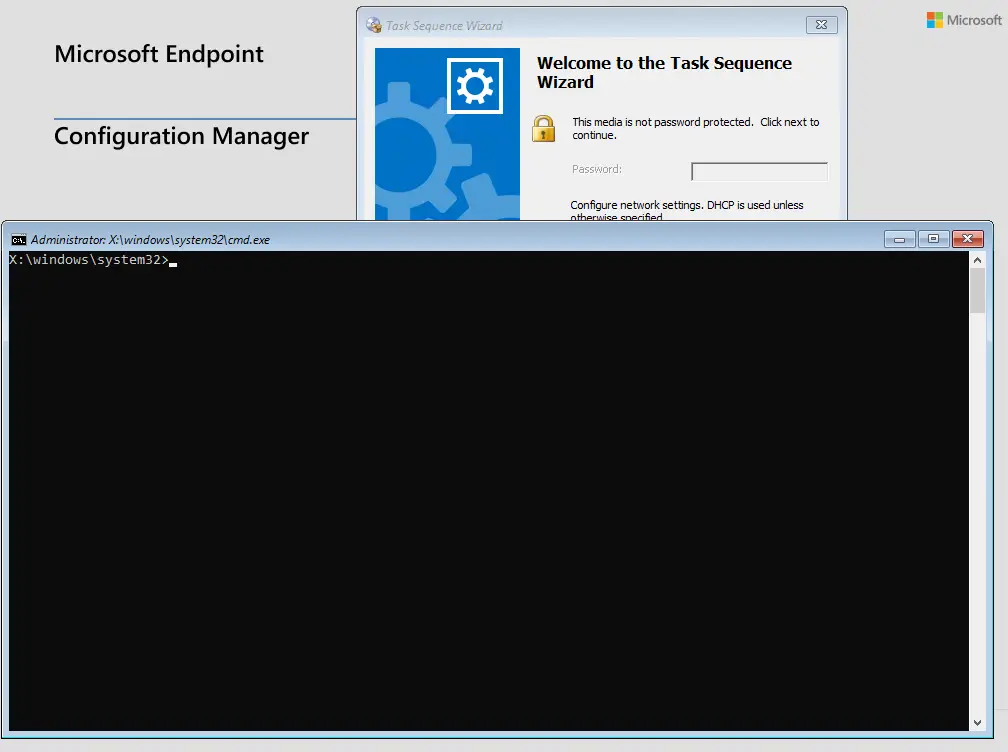
- Run the task sequence until it fails, the task sequence will not exit because we have opened the command prompt
- Below you can see in the screenshot I managed to replicate the issue in my test lab.
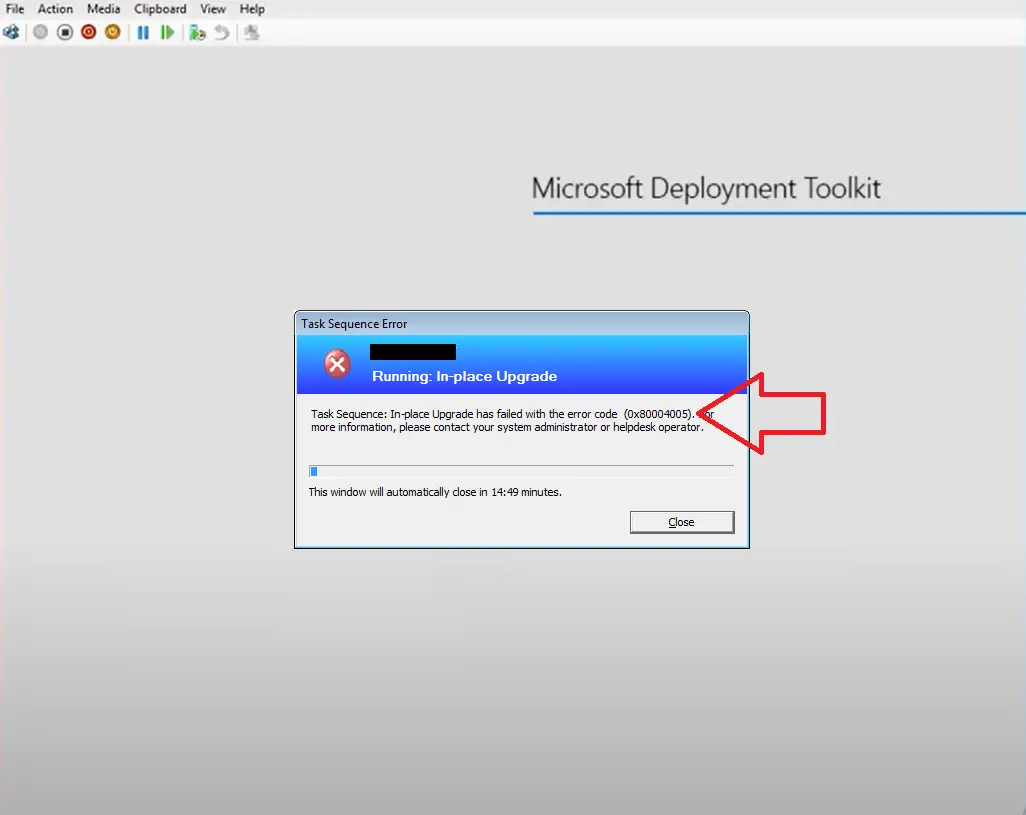

- There is not much information on this screen that we can use to resolve the issue.
- In the command prompt type in notepad and hit enter
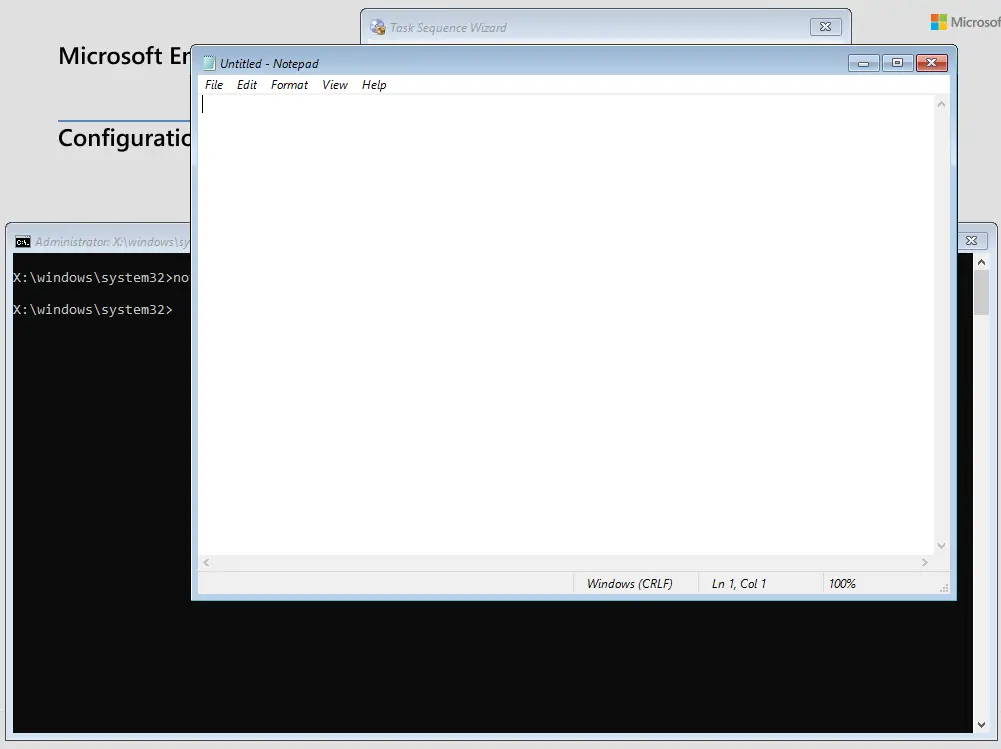
- In notepad hit file > open > select type of files (All Files)
- go to X:WindowsTempSMSLog
- Open SMSTS.log
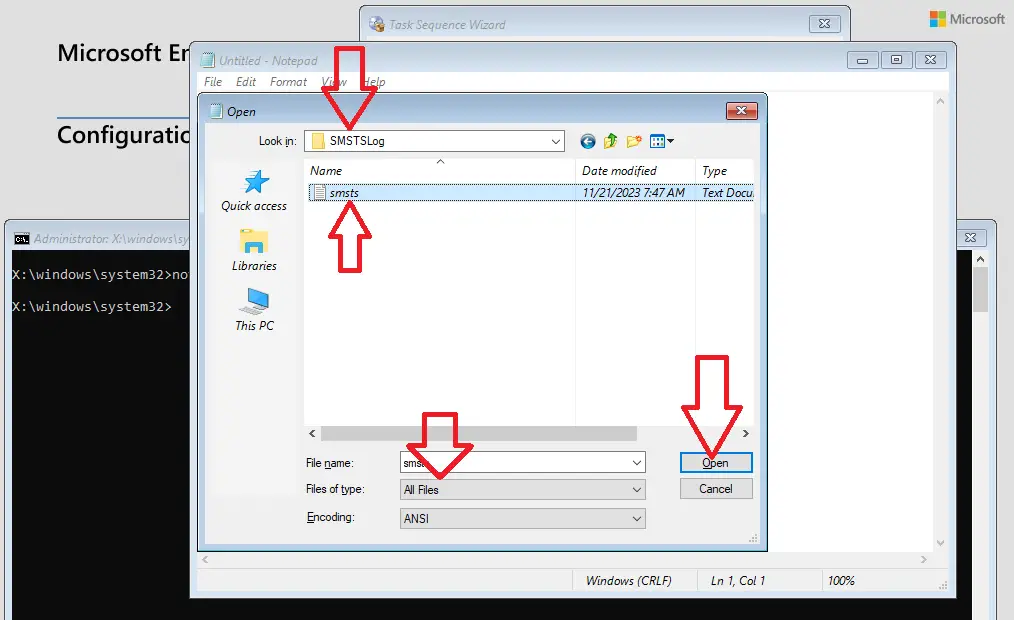
- Take a look at the last few lines as this will highlight what is causing the error.
- Below I can see that the office 2016 application has caused the task sequence to fail.
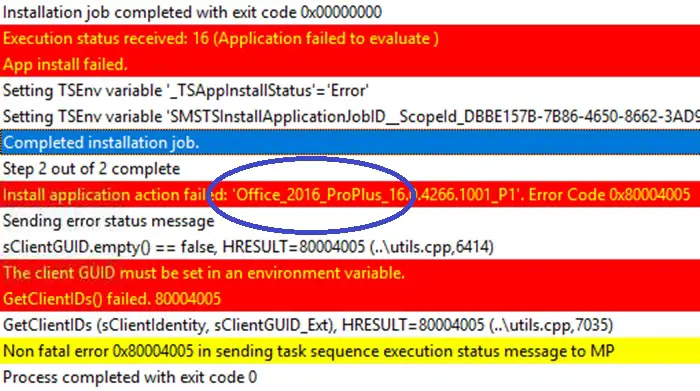



Now we know what cause the error 0x80004005 we can apply a fix. Below I am now going to go through the following fixes.
How To Fix Failed To Run Task Sequence 0x80004005
In my experience the error 0x80004005 is always resolved by applying one of the below fixes
- Application / Package
- Boundaries
- Certificate Expired
- Drivers
Application / Package
If you identify an application is causing the error we will need to check the applications install command. To do this follow these steps
- Open the configuration manager console
- Go to Software LibraryOverviewApplication ManagementApplications or Software LibraryOverviewApplication ManagementPackages
- Highlight the application with the issue
- Then make sure the application is distributed correctly, you should see numbers only next to success
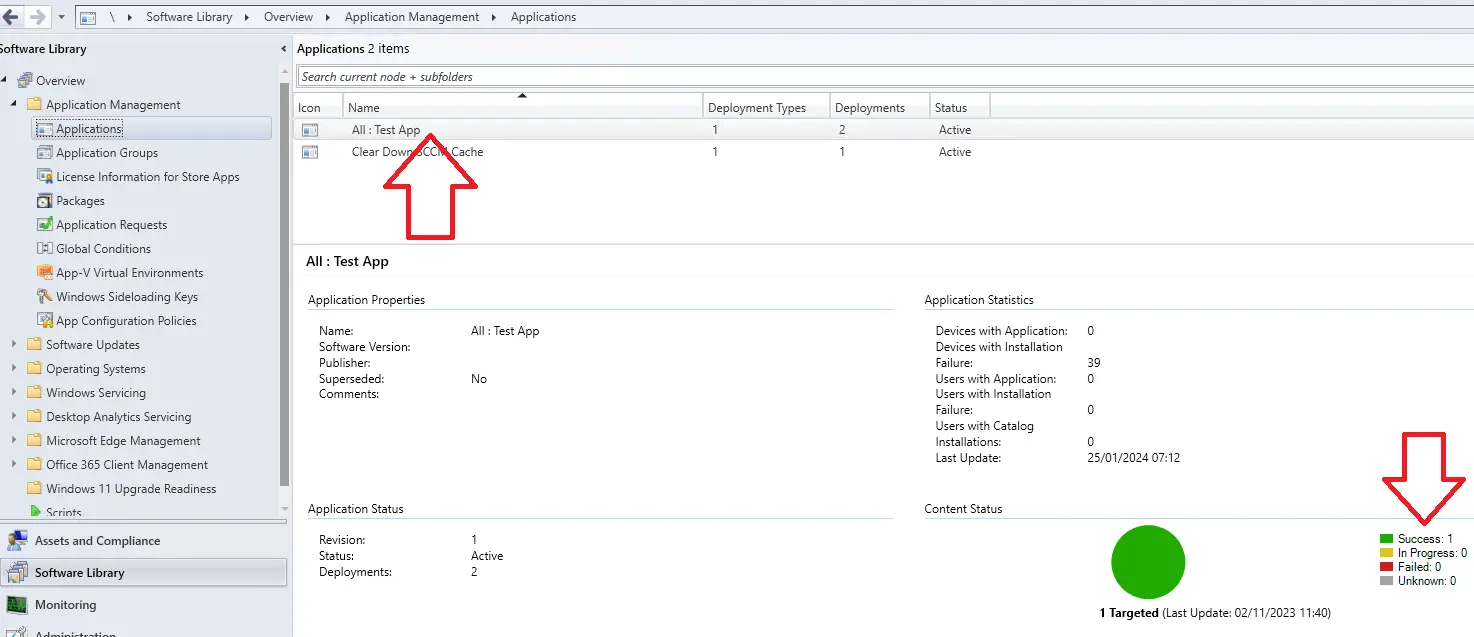

- If the application needs to be re-distributed right click on the application and select re-distribute.
- Right click on the application and select Properties
- Click the deployment types tab
- Select the application and click edit
- Click programs tab
- Verify the installation program command is correct
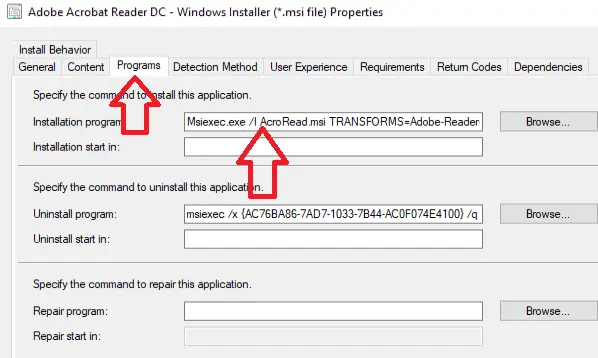

- I recommend to manually run this command on a machine that does not have the application installed to verify it installs correctly


Boundaries
If there are no boundaries configured in the configuration manager console for the network where you are running the task sequence from then the machine will not be able to download any content because it has not been given access by SCCM.


To check the boundaries do the following
- Confirm the IP of a machine you are running the task sequence on, The can be done by pressing F8 to bring up the command prompt then type in ipconfig
- Now open the SCCM console
- Go to AdministrationOverviewHierarchy ConfigurationBoundaries
- Confirm that the ip falls in to one of the boundary’s listed


- Next go to AdministrationOverviewHierarchy ConfigurationBoundary Groups
- Confirm the Boundary is in a Boundary group by right clicking on the boundary group and select properties
- Make sure the boundary is listed under Boundaries
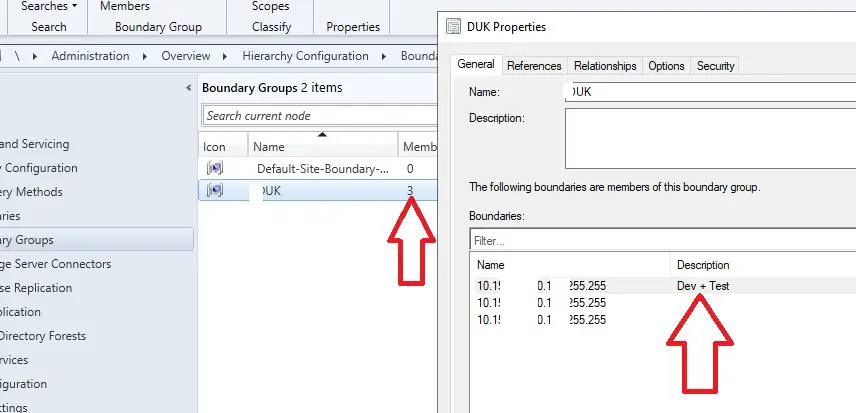

- Click on the references tab
- Confirm the box is selected next to “Use the boundary group for site assignment”
- Confirm the correct site is selected for “Assigned site”
- Confirm the expected sccm site server is listed, if it is not click add and add it from the list
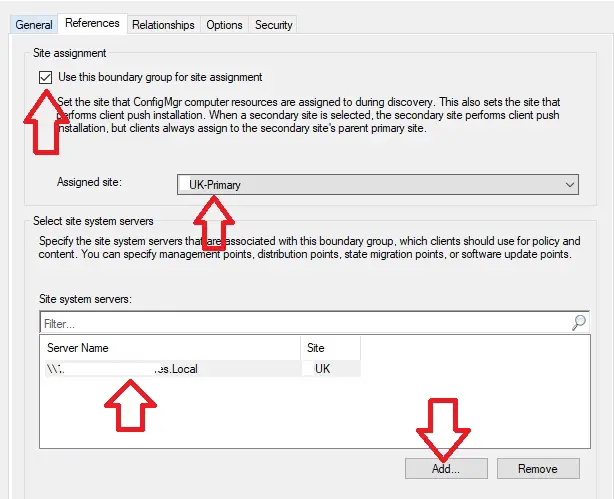



If you had to make changes to the boundaries I usually wait about 30 minutes before I try to build another machine again.
Certificate Expired
If the self-signed certificate has expired this will also cause the above error. To check if it has expired do the following.
- Open up the SCCM console
- Go to AdministrationOverviewSite ConfigurationServers and Site System Roles
- Left click on the SCCM server that is serving the PXE boot
- Right click on distribution point > Properties
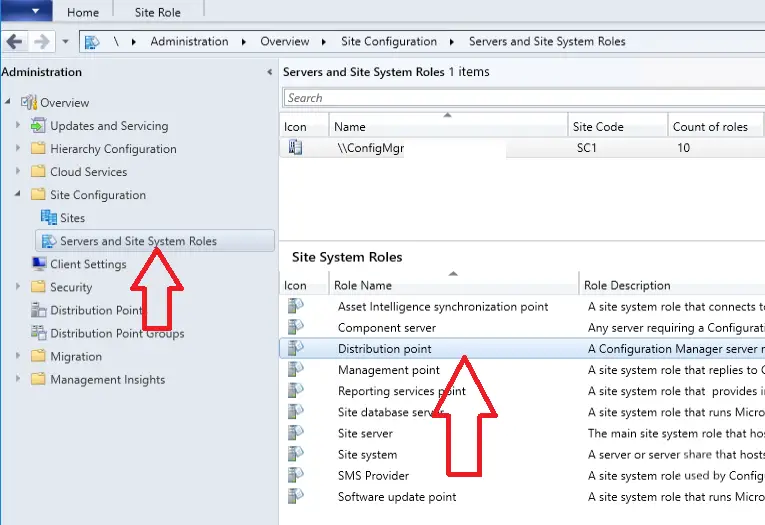

- Click on the communication tab
- Check the expiration date
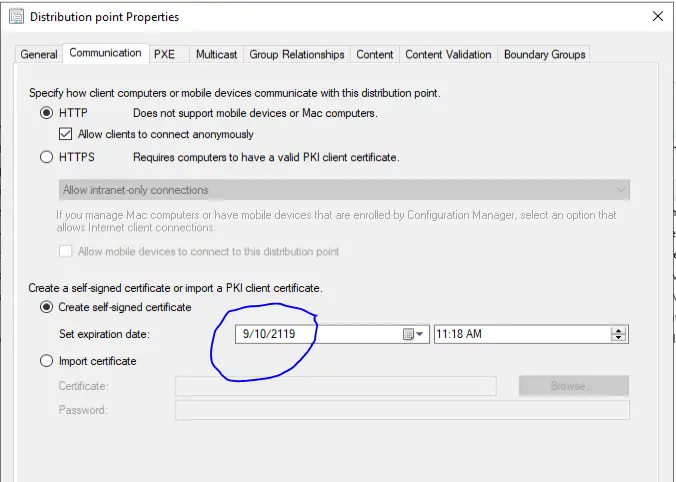

- If the certificate has expired you will need to re-new it


Drivers
If the error occurred was caused by a driver confirm the following
- Are the drivers being applied to the correct machine model
- Are the drivers distributed
You could try to re-download the drivers and add them back in to SCCM again. If you need help with this step take a look at this guide I wrote.
Are the drivers getting applied via a command line? I have seen an issue where there is a syntax error in the command line, for example
- (Setup.exe /auto upgrade / noreboot /dynamicupgrade /compat scanonly) Should of been
- (Setup.exe /auto upgrade / noreboot /dynamicupgrade /compat /scanonly)
it was missing a / before scanonly. To test the command line you can log on to the machine and manually run the command line and see if it installs as expected.
